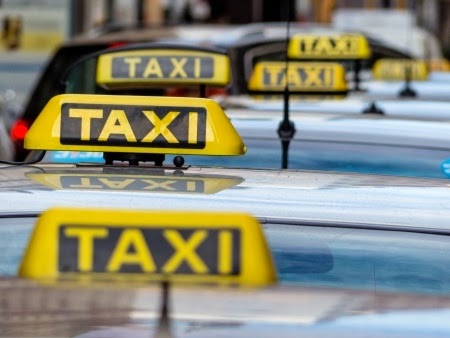In the latest conflict between technology and government regulation, Virginia’s DMV has issued a cease and desist order to Uber and Lyft, claiming that their businesses are illegal and cannot pick up passengers in Virginia. Undeterred, Lyft has responded that it intends to continue operating there, stating in a press release that Virginia residents and others have embraced it “as an affordable and reliable transportation alternative.” Lyft also points out that the current regulations for taxis and limos are outdated and do not account for this new tech-based industry. Uber also criticizes Virginia’s move, stating that it “hurts thousands of small business entrepreneurs who rely on [them] to make a living, create new jobs and contribute to the economy.”
This is an interesting development for Virginia, which has enjoyed a reputation as a business friendly venue but is now taking a stand many consider to be against free markets. The DMV has already fined Uber and Lyft thousands of dollars, and contends their businesses violate Virginia regulations since they allegedly do not “have proper operating authority.” Virginia’s move is in line with a recent trend by other governments in Los Angeles, Portland and San Francisco, where taxicab companies have wielded influence to try halting competition in those markets as well. Uber, which has raised over $300 million in venture capital, is also currently appealing a Maryland judge’s ruling that it must file an application to operate as a traditional for-hire carrier in order to operate there.
Virginia’s action as well as those of governments on the West Coast shows how old government regulations can stand in the way of free market technological innovation and cut down consumer choice. Regulations should evolve over time to enhance creativity, not stifle markets. The government too often has a heavy handed reputation of putting up barriers to entry, rather than supporting new technology and creativity that can increase profitability and decrease unemployment. Small businesses should be encouraged to expand consumers’ freedom of choice, which appears safe given Uber’s unique online consumer rating system that weeds out problems in a business model that does not apply for legacy carriers like taxis. Their drivers also use interactive apps with consumers in a manner that is more responsive but does not fit neatly into old-model government regulations.
This is a hot and emerging issue impacting cities throughout the United States, since Lyft is currently operating in sixty US cities and Uber has a presence in 100 cities. It is interesting that various governments take the position these technology based companies are not in trend with regulations, when it appears the government is not keeping pace with new technology. These trends appear to be on a collision course in Virginia, and this heated dispute will probably require a court to step behind the wheel and decide how far governments can go to head off technological advancement. Watch closely as this dispute heats up, as some resolution lies down the road.
Seth Berenzweig is a managing partner at the Washington, DC regional business law firm, Berenzweig Leonard, LLP. He can be reached at SBerenzweig@BerenzweigLaw.com.
This is an interesting development for Virginia, which has enjoyed a reputation as a business friendly venue but is now taking a stand many consider to be against free markets. The DMV has already fined Uber and Lyft thousands of dollars, and contends their businesses violate Virginia regulations since they allegedly do not “have proper operating authority.” Virginia’s move is in line with a recent trend by other governments in Los Angeles, Portland and San Francisco, where taxicab companies have wielded influence to try halting competition in those markets as well. Uber, which has raised over $300 million in venture capital, is also currently appealing a Maryland judge’s ruling that it must file an application to operate as a traditional for-hire carrier in order to operate there.
Virginia’s action as well as those of governments on the West Coast shows how old government regulations can stand in the way of free market technological innovation and cut down consumer choice. Regulations should evolve over time to enhance creativity, not stifle markets. The government too often has a heavy handed reputation of putting up barriers to entry, rather than supporting new technology and creativity that can increase profitability and decrease unemployment. Small businesses should be encouraged to expand consumers’ freedom of choice, which appears safe given Uber’s unique online consumer rating system that weeds out problems in a business model that does not apply for legacy carriers like taxis. Their drivers also use interactive apps with consumers in a manner that is more responsive but does not fit neatly into old-model government regulations.
This is a hot and emerging issue impacting cities throughout the United States, since Lyft is currently operating in sixty US cities and Uber has a presence in 100 cities. It is interesting that various governments take the position these technology based companies are not in trend with regulations, when it appears the government is not keeping pace with new technology. These trends appear to be on a collision course in Virginia, and this heated dispute will probably require a court to step behind the wheel and decide how far governments can go to head off technological advancement. Watch closely as this dispute heats up, as some resolution lies down the road.
Seth Berenzweig is a managing partner at the Washington, DC regional business law firm, Berenzweig Leonard, LLP. He can be reached at SBerenzweig@BerenzweigLaw.com.


No comments:
Post a Comment